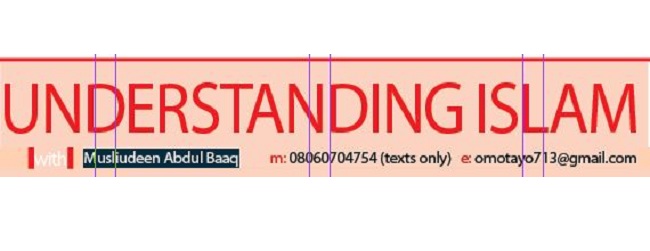IN the name of Allah, the Most Gracious, Most Merciful.
After the Prophet Muhammad (SAW) received his first revelation in Mecca around 610 CE, marking the beginning of his prophetic mission, he spent the next 13 years preaching the message of Islam, calling people to the worship of Allah (SWT) and to a righteous way of life. However, his message was met with stern rejection from his own tribe, the Quraysh, the dominant tribe in Mecca, who saw Islam as a threat to their social and economic status.
As the persecution of Muslims intensified, the Prophet Muhammad (SAW) and his followers faced severe hardships. Many were tortured and some lost their lives. The situation became so dire that the Prophet (SAW) instructed some of his followers to migrate to Abyssinia (modern-day Ethiopia), a Christian kingdom known for its just ruler. A turning point came when the people of Yathrib (later known as Medina), who had visited Mecca for pilgrimage, pledged their allegiance to the Prophet (SAW) at Aqaba, promising to protect him and his followers. This pledge, known as the Second Pledge of Aqaba, set the stage for the Hijrah.
Importance of faith and perseverance
The Hijrah demonstrates the Prophet’s (SAW) unwavering faith in Allah’s (SWT) guidance and his steadfastness in the face of adversity. It teaches Muslims to trust in Allah’s (SWT) plan and to persevere through challenges with patience and determination.
“Those who believed and emigrated and strove hard and fought in Allah’s Cause with their wealth and their lives are far higher in degree with Allah. They are indeed the successful ones. Their Lord gives them glad tidings of mercy from Him, and of His being pleased with them, and of Gardens (Paradise) for them wherein are everlasting delights. They will dwell therein forever. Verily, with Allah is a great reward.” — Qur’an 9 [At-Taubah]: 20–22
This verse underscores the spiritual dimension of Hijrah, highlighting the rewards that await those who undertake this journey for the sake of their faith.
Redefinition of intention
Many of us are familiar with the beautiful hadith of Umar, the first in Al-Arba’un of Imam An-Nawawi. The event that led to its revelation happened before the Hijrah. A man wished to marry Umm Qays in Mecca, but she declined his proposal, saying he would have to emigrate to Madinah to marry her. Accordingly, the man migrated to Madinah for this specific purpose, and they were married there.
Due to this incident, the Prophet (PBUH) received revelation about the importance of intention, and the man came to be known among the Companions as Muhajir Umm Qays. May Allah reward him and forgive his errors. The lesson here is profound: he taught us the value of having the right intention before every action.
Entrusting Allah undoubtedly
The Prophet (SAW) had unshakeable faith in his Lord, and this is a great lesson for today’s Muslims. When the Quraysh discovered that he was heading to Madinah, they pursued him. During the journey, the Prophet (SAW) and his companion, Abu Bakr, sought refuge in a cave. As their pursuers drew near, Abu Bakr grew fearful, but the Prophet (SAW) reassured him, as reported in the Qur’an: “Be not afraid, surely Allah is with us.” Then Allah sent down His Sakinah (calmness, tranquillity, peace) upon him and strengthened him with forces (angels). — Qur’an 9 [At-Taubah]: 40
Preservation of the Message
The tranquility of Madinah allowed Islam to grow and develop. Muslims deepened their understanding of the religion and taught others. People embraced the faith in large numbers from far and wide. Islam transitioned from a regional movement to a universal one. This period marked the beginning of the Muslim State’s outreach to Persia, Egypt and the Byzantine Empire.
The Islamic community grew in strength, becoming a global force. Allah can use anyone to fulfill His purpose. The role of the Ansar in preserving Islam is a powerful reminder to today’s Muslims.
“When there comes the Help of Allah and the conquest (of Makkah). And you see that the people enter Allah’s religion (Islam) in crowds, then glorify the Praises of your Lord, and ask His Forgiveness. Verily, He is the One Who accepts repentance and forgives.” — Qur’an 110 [An-Nasr]: 1–3
With difficulty comes ease
Indeed, persistence often overcomes resistance. History sometimes forgets that Muslims were humiliated, tortured, and killed by the Quraysh in Mecca’s early days. Yet, the Prophet (PBUH) and his companions endured with patience, and Allah granted them a great victory.
Even the migration itself was difficult. Many Muslims became ill upon arriving in Madinah. Some had to part from their loved ones. Others lost their wealth, as the Quraysh forbade them from taking their possessions. But in the end, Allah’s promise was fulfilled. So do not lose hope, O Muslims!
“So, surely with hardship comes ease.” — Qur’an 94 [Ash-Sharh]: 5
Strengthening the brotherhood
One of the beautiful outcomes of the Hijrah was the strengthening of brotherhood among Muslims. The Muhajirun were the migrants from Mecca, while the Ansar were the residents of Yathrib who welcomed the Prophet (SAW) and his companions warmly.
An exemplary moment is described in the following hadith:
Narrated Anas: When ‘Abdur-Rahman bin ‘Auf came to us, Allah’s Apostle made a bond of fraternity between him and Sa’d bin Ar-Rabi’, who was a rich man. Sa’d said, “The Ansar know that I am the richest among them. I will divide my property in two between you and me, and I have two wives. See which one you prefer, and I will divorce her so you may marry her after her ‘Iddah.”
‘Abdur-Rahman replied, “May Allah bless you in your family and wealth.” He then went to the market and returned later with some grain of dried yogurt and butter. Within days, he appeared before the Prophet (SAW) bearing traces of yellow scent on his clothes.
The Prophet (SAW) asked, “What is this scent?”
He replied, “I have married a woman from the Ansar.”
The Prophet (SAW) asked, “How much Mahr did you give her?”
He said, “A date-stone’s weight of gold.”
The Prophet said, “Hold a marriage banquet, even if only with a sheep.” — (Bukhari)
READ ALSO: Trust: Prophet Muhammad’s lessons in leadership
WATCH TOP VIDEOS FROM NIGERIAN TRIBUNE TV
- Let’s Talk About SELF-AWARENESS
- Is Your Confidence Mistaken for Pride? Let’s talk about it
- Is Etiquette About Perfection…Or Just Not Being Rude?
- Top Psychologist Reveal 3 Signs You’re Struggling With Imposter Syndrome
- Do You Pick Up Work-Related Calls at Midnight or Never? Let’s Talk About Boundaries







